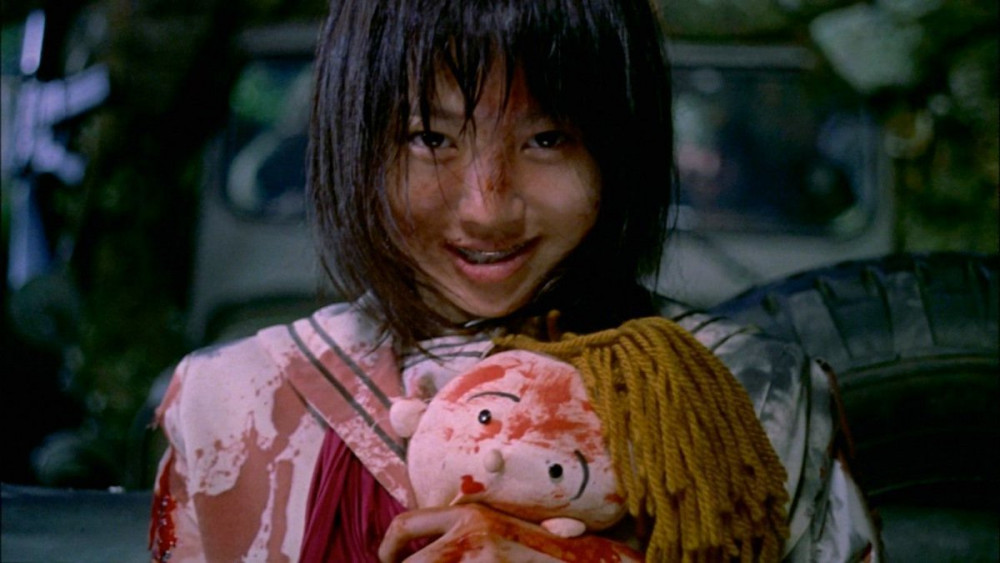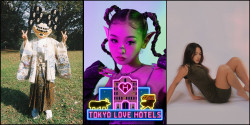
January 16, 2025
The Top 10 Japanese Movies Of All Time
How would you rank your favorite Japanese cinema?
We cover the top 10 Japanese movies of all time, from recent cinema hits, to animation classics.
10- Godzilla Minus One (2023)
Director: Takashi Yamazaki
It may be too early to make this claim, but Takashi Yamazaki’s 2023 Godzilla Minus One might be down as one of the greatest movie adaptations of the iconic monster.
After Hollywood’s failed attempts in recent years to make a compelling Godzilla movie, Yamazaki proved that it’s possible to create a cinematic masterpiece with just a $15m budget. The action scenes are dramatic, exciting and keep the audience on tenterhooks. Yet, it’s not just the action that makes this movie special—it’s so much more.
Godzilla Minus One develops a tenderness and emotional connection between the audience, the protagonist and his family––a level of intimacy that is often missing in similar box-office movies. You are truly rooting for him to triumph against the monster.
9 – Tokyo Story (1953)
Director: Yasujiro Ozu
Tokyo Story might not be the most thrilling movie of all time, but its approach to themes of family and the shifting Japanese culture after World War II ensures that it lingers with the audience.
Yasujiro Ozu’s 1953 drama follows an elderly couple from the seaside town of Onimichi who travel to Tokyo to visit their children. The children are too busy to look after them and send them off to a health spa. Sensing they are becoming a burden, the couple return home but tragedy strikes when the mother falls ill.
Ozu takes the every day and turns it into a timeless piece of art. Meditations on death and family are themes that resonate with everybody all over the globe This enduring relatability is why Tokyo Story remains just as powerful today as when it was released over 70 years ago.
8 – Akira (1988)
If Studio Ghibli shows the beauty of nature and rural Japan, then Katsuhiro Otomo’s Akira shows the gritty underbelly of a dystopian futuristic Neo-Tokyo.
The movie follows a bike gang leader, Kaneda, who tries to save his friend Tetsuo from a secret government project. From cinematic motorbike chases across the city to destructive battles and superhuman powers, Akira redefined the anime genre and set the standard for everything that followed.
7 – Ikiru (1952)
Director: Akira Kurosawa
From samurai dramas to detective thrillers to war epics, Akira Kurosawa established himself as one of the most prolific and versatile filmmakers in cinematic history. His career was long and illustrious, but his reputation was perhaps best encapsulated by his work in the early 50s. Just before making the classic Seven Samurai, Kurosawa directed the Tragedy, Ikiru.
Ikiru, which translates to “To Live,” follows civil servant Kanji Watanabe, who tries to find meaning in his life after discovering he has terminal cancer. The best movies can inspire individuals to make a change in life and Ikiru certainly has that effect as it’s a life-affirming exploration of mortality and the pursuit of happiness that everyone can learn from.
6 – Audition (1999)
Director: Takashi Miike
When Takashi Miike’s controversial J-horror classic, Audition, held its European premiere at the Rotterdam Film Festival in 2000, it received a record number of walkouts. The attendees were sickened and in disbelief by what they had witnessed.
The 1999 movie follows a middle-aged widower who enlists the help of his film producer friend to stage an audition for a fake movie to meet a potential new partner. Thinking that he has met the woman of his dreams, he soon discovers that her dark past severely affects their relationship.
The movie starts incredibly slow-paced and is almost reminiscent of movies from Japanese masters like Ozu, as a domestic scene unfolds before our eyes. After lulling the audience into a false sense of security for the first hour, Miike sends them on a grotesque and unpredictable hallucinatory trip.
Whether you love the movie or hate the movie, it is one that you will truly never forget. It makes you feel uncomfortable and frightened about what horrors will unfold next.
5 – My Neighbor Totoro (1988)
Director: Hayao Miyazaki
Released in 1988, My Neighbor Totoro has become one of the most universally recognizable animations in movie history, warming the hearts of anyone who watches it.
The movie follows two young sisters, Mei and Satsuki, who move to a new home in the countryside with their father after their mother is hospitalized. As the siblings spend their days playing in the nearby woods, they soon befriend Totoro, a giant, friendly forest spirit.
As with any great animation, My Neighbor Totoro takes adult themes such as the fear of loss, environmentalism and the importance of family, and condenses them into something that resonates equally with adults and children alike.
4 – Battle Royale (2000)
Director: Kinji Fukasaku
Arguably one of the most influential Japanese movies of the last few decades, Kinji Fukasaku’s Battle Royale is a timeless dystopian thriller that captivates the audience from the beginning to the very end.
Under a dystopian totalitarian rule, 42 students are sent to a desert island where they are forced to kill each other. Only the last to survive may leave the island alive.
Upon release, Battle Royale was banned in many countries due to its controversial plot. However, this only helped grow the movie’s cult status. It is a thrill ride that is unpredictable, fun and incredibly violent. Don’t just take my word for it; legendary filmmaker Quentin Tarantino declared the movie as one of his favorites of the last two decades.
The movie’s influence stretches beyond cinema and into video games with the Battle Royale format gaining worldwide success in games such as Fortnite and Call of Duty: Warzone.
3 – Seven Samurai (1954)
Director: Akira Kurosawa
Akira Kurosawa’s Seven Samurai is widely regarded by many as one of the greatest movies of all time. The 1954 classic follows a group of farmers who hire samurai to protect their crops against bandit gangs. From its iconic score to dramatic battles and rich dialogue, the movie set the gold standard for the samurai genre.
Critically acclaimed all over the world, it inspired works such as The Magnificent Seven and The Lord of the Rings: The Two Towers. Kurosawa’s movie even inspired Star Wars, with George Lucas approaching lead actor Toshiro Mifune to play the role of Obi-Wan-Kenobi, before he turned it down.
2 – Rashomon (1950)
Director: Akira Kurosawa
Over the years, a number of Japanese movies have become hugely influential in Hollywood. However, likely none more so than Kurosawa’s 1950 classic: Rashomon.
The movie tells the story of a rape and murder recalled from the perspectives of a bandit, a bride, a samurai’s ghost and a woodcutter.
Usually, we expect a level of resolution in movies to provide closure from the dramatic events we have seen unfold. However, the audience is not given this comfort with Rashomon. Instead, they’re given four different perspectives of the same scenario, each differing slightly, destroying the illusion of the “objective truth.” This plot device has become popular in Hollywood with the “Rashomon Effect” which plays with the idea of an unreliable narrator, as seen in movies such as The Usual Suspects and Gone Girl.
1- Spirited Away (2001)
Director: Hayao Miyazaki
For many people, animated movies provide escapism from the real world, and Studio Ghibli’s Spirited Away perfectly captures this desire for adventure. The audience is taken to a world that is both beautiful and dangerous.
This 2001 classic tells the story of ten-year-old Chihiro, who ends up at an abandoned amusement park and bathhouse inhabited by supernatural beings. After her parents are transformed into pigs, the young heroine must work to free them from the witch’s spell.
The story is layered and poignant but it is the score and visual beauty of Miyazaki’s world which transcends Spirited Away into one of the greatest movies of all time. You could pause the movie at any point, and that frame would be a piece of art worthy of being in any art gallery.







